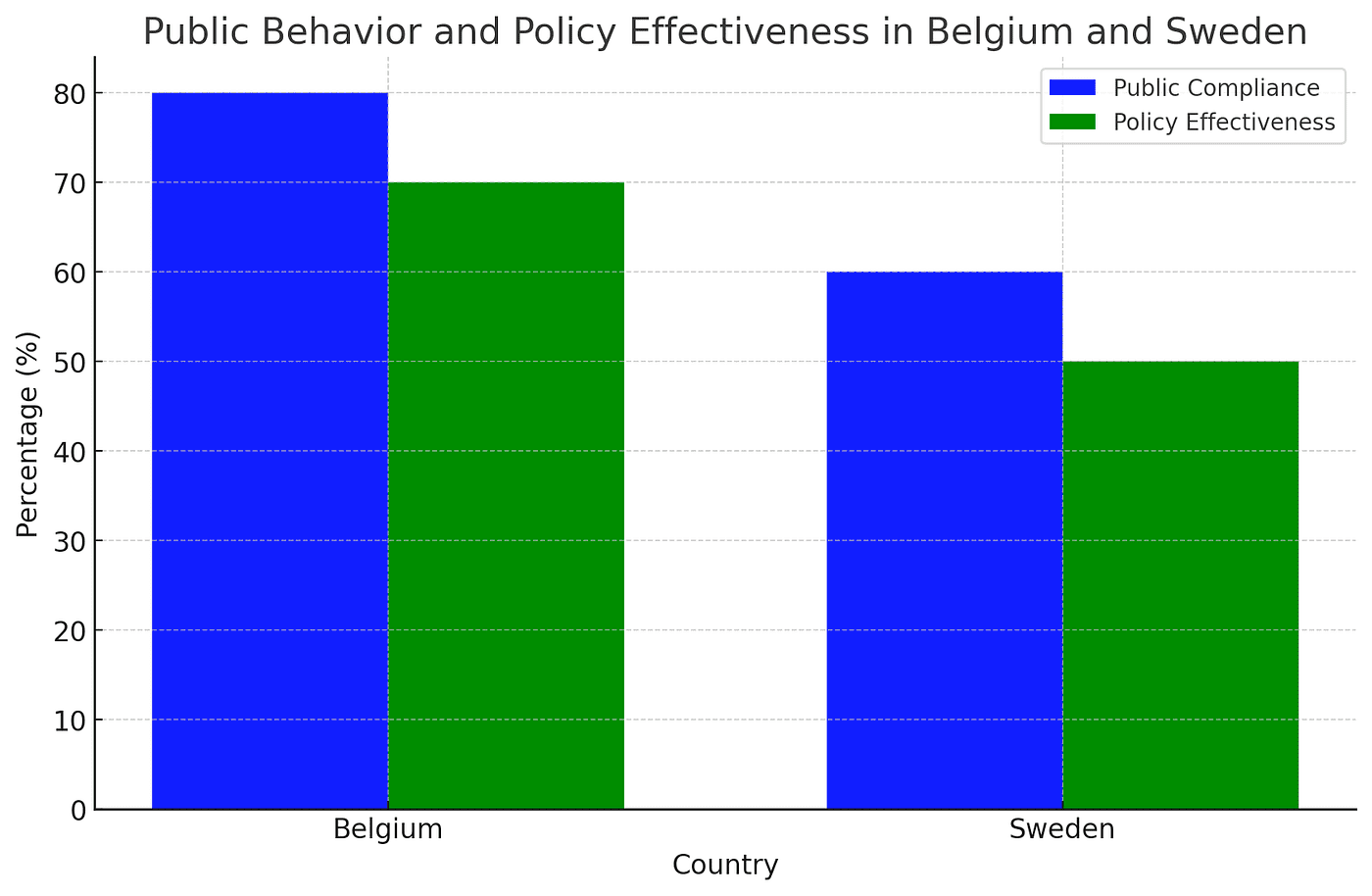
In a world turned upside down by COVID-19, two countries, Belgium and Sweden, chose different paths. Belgium took the route of strict measures, enforcing lockdowns and mandatory rules to control the virus. Sweden, on the other hand, opted for a more relaxed approach, relying on voluntary measures and trusting its citizens to follow guidelines. This paper examines these starkly different strategies, looking closely at how each country’s decision impacted both the spread of the virus and the economy.
The Research Duo
The researchers, the brains behind this study, aren’t just scientists; they’re like detectives in the world of pandemic management. Working at Ghent University, their goal was to dissect and understand how different approaches to handling the pandemic played out in real life. They were particularly interested in the balancing act between keeping people healthy and keeping the economy running.
Key Insights from the Study
Diverse Strategies, Different Outcomes
The study takes us on a journey through Belgium’s strict lockdowns and Sweden’s faith in voluntary actions. It’s like comparing two chefs cooking the same dish with different recipes. The outcomes, in terms of health and economic impacts, were notably different.
Economic-Epidemiological Modeling
The Authors didn’t just guess; they built a model, like a sophisticated computer game, simulating how government policies and people’s behavior could affect the virus’s spread and the economy.
Impact on Healthcare Systems
Their study shows a crucial lesson: acting early and decisively can make a big difference. Quick responses might reduce the need for harsher measures later and help keep hospitals from being overwhelmed.
Long-term Pandemic Course
The researchers suggest that we might see waves of COVID-19 come and go. The way people behave, voluntarily or due to rules, could shape these waves.
Explaining the Complexities
Economic-Epidemiological Co-Simulation Model
Picture a high-tech simulation, like a computer game that models real life. In this game, the researchers created a virtual world that mirrors our own, complete with people, governments, and a pandemic. This model is like a crystal ball, showing how different actions — like lockdowns or social distancing — can change the course of the pandemic and the economy. It’s a blend of economics and epidemiology, two fields that don’t usually hang out. By combining them, the researchers could see how saving lives and saving the economy are linked.
Behavioral Changes and Pandemic Dynamics
Imagine every person as a puzzle piece in a giant jigsaw puzzle of society. How we act, whether we stay home, wear masks, or keep distance, affects how this puzzle looks and functions. The researchers studied how these individual pieces, when moved differently, can change the whole picture. It’s like a social experiment on a massive scale. This part of the study is crucial because it tells us something profound about human behavior and its ripple effects during a pandemic.
Let’s take a closer look at how the citizens of Belgium and Sweden responded to their government’s guidelines and the resulting effectiveness of these policies with the following graph.

Comparing Country Strategies
Now, think of Belgium and Sweden as two different chefs cooking the same dish, each with their unique recipe. Belgium’s recipe was strict: lockdowns and mandatory rules. Sweden’s recipe was more about personal choice: voluntary guidelines and trust in people. This section is like a food critique, analyzing which recipe worked better. The researchers looked at how these different ingredients — policies, public behavior, healthcare systems — blended together to combat the pandemic. It’s a tale of two countries, each trying to find the right balance between health and freedom, safety and normalcy.
Policy Implications
The findings highlight the ripple effect of government actions and lockdowns. They show us the potential long-term consequences, not just on health but also on the economy and society.
Lessons for the Future
This research is a valuable lesson in dealing with global crises. It teaches us about the delicate balance between health and the economy, the power of early action, and the impact of our choices. As we look ahead, understanding these dynamics is crucial for navigating future challenges. It’s a call to be informed, responsible, and proactive, not just for COVID-19 but for any global challenge we might face.
About Disruptive Concepts
Welcome to @Disruptive Concepts — your crystal ball into the future of technology. 🚀 Subscribe for new insight videos every Saturday!







